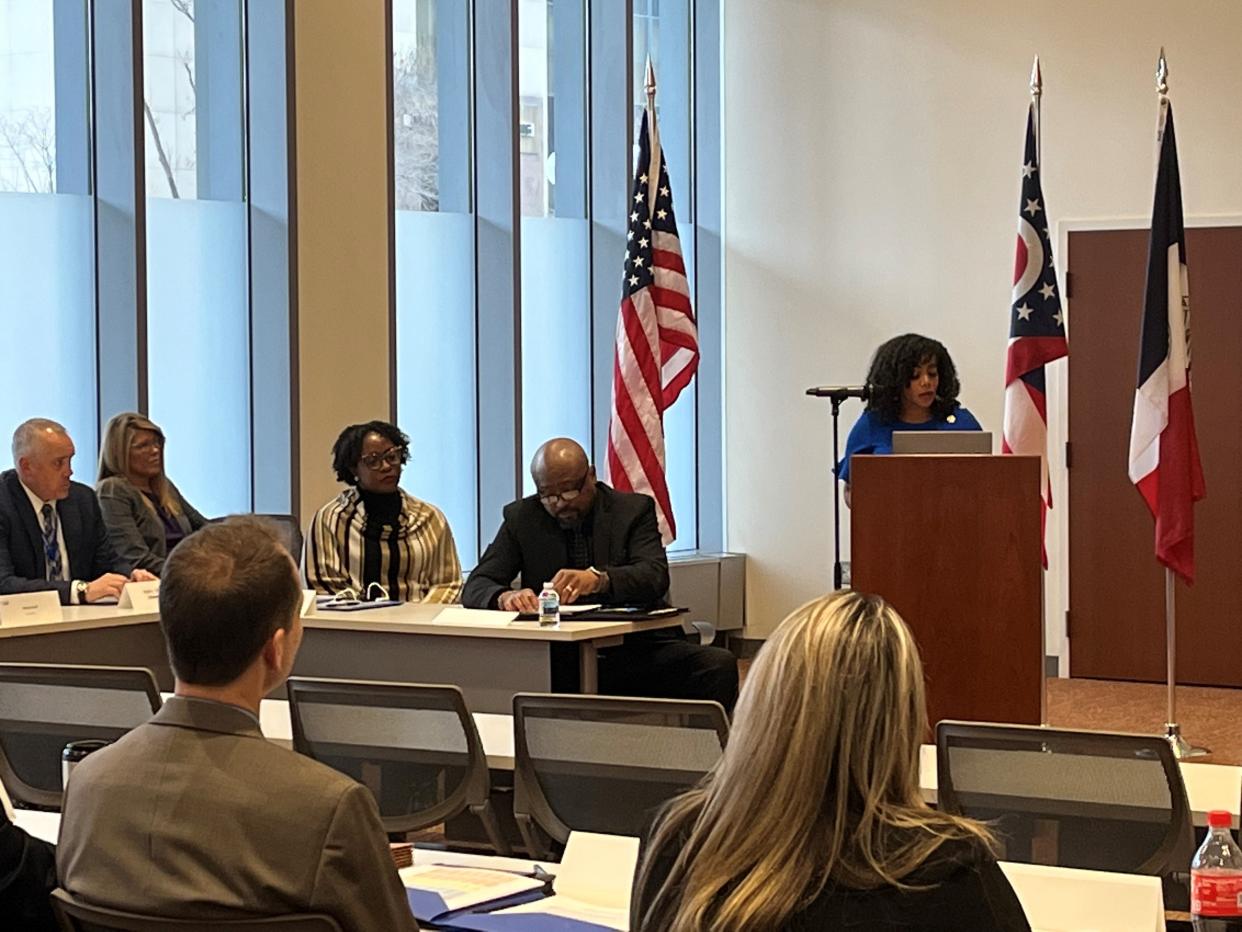Franklin County joins national Justice Counts criminal justice system database

Franklin County officials hope that joining a nationwide database will let them share investigative details and crime statistics more quickly and efficiently in order to better identify trends and address disparities in the criminal justice system, make the county safer, and help victims.
The county will be the first local government in the nation — and the second organization in Ohio — to join the Justice Counts initiative, officials announced Wednesday, a day after the Board of Commissioners unanimously agreed to participate in and adopt a set of metrics to guide the database's creation.
Members of the county's Criminal Justice Planning Board heard details Wednesday afternoon from managers of the program, which will be administered locally through the Office of Justice Policy and Programs.
More:No tax hikes included in $2 billion Franklin County budget for 2023
More:In some Franklin County precincts, almost everybody stayed home on Election Day
A consensus-building effort of the U.S. Department of Justice, led by The Council of State Governments Justice Center and 21 partner organizations, Justice Counts is "designed to help policymakers, the public and stakeholders in the criminal justice system better utilize, understand and leverage data to drive decisions," said Ben Shelor, deputy program director for the Justice Center.
The idea, according to the initiative, is to do this by:
Creating consensus-driven metrics
Developing a special digital infrastructure to display metrics and data
Providing technical assistance for entities that adopt the initiative
Partner organizations include the National Sheriffs' Association, the American Probation and Parole Association, the National Association of State Mental Health Program Directors, the International Association of Chiefs of Police and the University of Cincinnati Corrections Institute.
"Typically, we know what's happening in our silo, but we don't know what's happening in the one before us, and we don't always appreciate how what we do impacts the one that comes next," said Heather Tubman-Carbone, senior policy adviser for the Justice Department's Bureau of Justice Assistance.
With so many agencies providing different data, one participant called it "comparing apples to dump trucks" or "apples to Tuesdays, never mind like apples to oranges," Tubman-Carbone said.
Justice Counts aims to streamline the process, bolster communication and create a true apples-to-apples comparison — or at least clarify for policymakers when they're dealing with apples or dump trucks.
Agencies already voluntarily provide information to the FBI and other criminal databases, but Justice Counts provides a common framework for them to share and compare information in a streamlined format that local police, prosecutors, probation officers, community corrections and court officials will help build over the next several months, said Katie Mosehauer, program director for The Council of State Governments Justice Center.
"That's really what I'm excited about for the data visualization component is to actually bring really strong design and accessibility to data so that it works for everyone who needs to use it, not just researchers," Mosehauer said.
At the Franklin County Sheriff's office, the database will help officials identify trends and root causes of issues deputies face daily, especially at the jail, Sheriff Dallas Baldwin said.
"I'm a believer that the more information we get and the more we share with each other, the better we can get," Baldwin said. "I'm looking forward to it."
Under the current model, it sometimes can take months, if not years, for policymakers to gain access to information that might show evidence of disparities within the justice system, Franklin County Board of Commissioners President Erica Crawley said in a prepared statement.
"This initiative will allow pressing issues like inequitable treatment to be identified earlier and will provide policymakers the tools they need to make better-informed decisions," she said.
In addition, Justice Counts will allow officials to improve processes systems and help both victims and offenders, from preventing victims from having to recount multiple times the trauma they experienced to helping people with mental health or substance abuse disorders, commissioners said.
"We hope to serve as an example for other state and local governments, offering a more up-to-date, accurate and accessible data-driven partnership between criminal justice agencies," Crawley said. "In an ever-increasing challenging environment to make critical decisions about the safety and civil liberty of residents, it's more important than ever we have a reliable, centrally located operating system throughout our justice systems."
But it's not just Franklin County that wants to get in on the initiative.
Tom Stickrath, Ohio Department of Public Safety director, said officials were planning to introduce it this week to the Ohio Criminal Sentencing Commission.
"Hats off to you, Franklin County. You've been at the forefront of so many of these initiatives," Stickrath said. "You became a pioneer in the national Stepping Up initiative. I just salute Franklin County for the leadership role you've played in the past, the present and going into the future."
nshuda@dispatch.com
@NathanielShuda
This article originally appeared on The Columbus Dispatch: Franklin County joins national Justice Counts database

